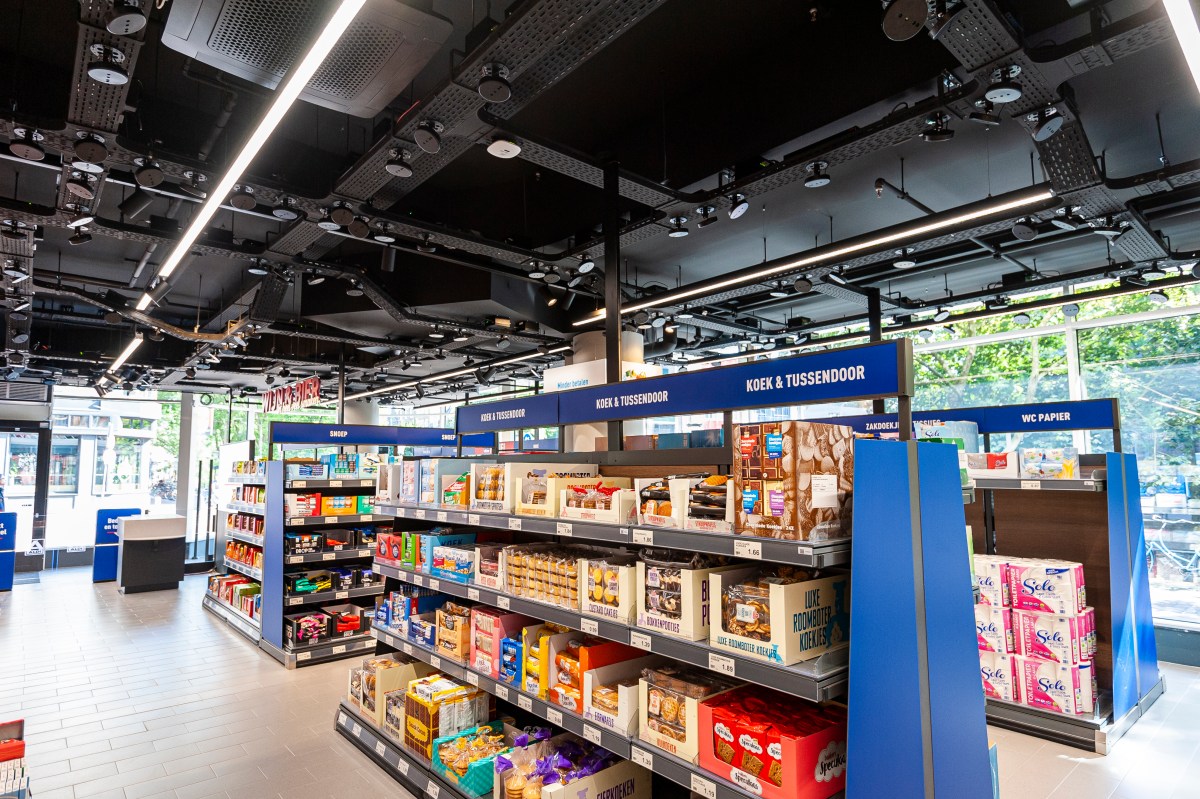
Trigo Raises $100M to Expand Amazon-Style Cashless Store Technology • TechCrunch
Amazon has become an enabler of commerce, and today the startup, which is building technology to help retailers keep pace with the world of brick-and-mortar stores, is announcing funding to expand its business. Trigaan Israeli startup creating technology for cashier-less, “just walk out” stores like the ones you might find in Amazon Go stores has raised $100 million.
Trigo focuses on grocery shopping and already has a large list of food retailers on its books, including Tesco, the British supermarket giant; REWE Germany; ALDI Nord in the Netherlands; Netto in Munich; Shufersal in Israel; and Wakefern Cooperative in the US. It is planned to use the funding to expand engagement with them and replenish the list amid strong competition in the market. Others in the same category include Standard cognition (estimated at over $1 billion last year), Shopian, Capers, Zippinand Grabangato name a few.
It will also double down on its technology expansion. Along with its autonomous checkout system based on hardware and software, Trigo also provides inventory management and will soon launch “StoreOS” to combine it with other tools (analytics, marketing and more) to help brick-and-mortar retailers connect their brick-and-mortar stores are doing better with their online operations, and — thanks to the popularity of e-commerce — that’s what customers generally expect from any shopping experience these days.
Singapore’s Temasek and 83North are co-leading the round, with new backer SAP and previous backers Hetz Ventures, Red Dot Capital Partners, Vertex Ventures, Viola and REWE also participating.
The startup did not disclose the valuation, but according to PitchBook its latest estimate in 2020 was in the neighborhood of $208 million. This latest round brings the total to nearly $300 million.
Computer vision, machine learning and other artificial intelligence innovations are being used heavily in autonomous systems in a number of industries these days, and supermarkets have been one of the most interesting applications. Faced with an onslaught of offers to buy products online and have them delivered to your home in ever-shorter timeframes, the in-store experience for retailers has largely stagnated.
However, the store also incurs a large amount of inefficient overhead due to real estate and construction costs, product rotation, theft, and customer service staff costs. The argument for implementing autonomous systems in the grocery store is not technology for technology’s sake, but that it will help reduce costs and waste in all these areas, while speeding up the experience for customers who are usually in a hurry to do something else.
Trigo’s self-checkout solution, called “EasyOut,” is based on a series of overhead cameras, shelf sensors and algorithms that work with stores’ “digital twins” to operate without a cashier.
Some believe this is an expensive approach, both in terms of initial installation and maintenance, arguing that other approaches, such as systems based on sensors that are placed on shopping carts themselves, are a better approach.
“Smart counters and smart carts have a place, but the frictionless checkout in a full store based on cameras and artificial intelligence sensors, where the cost of hardware decreases over time, surpasses both the experience it provides to shoppers and the efficiency and tools that it enables retailers,” CEO and co-founder Michael Gabay said in an email to TechCrunch. One of the challenges is that shopping carts don’t take into account shoppers who only buy a couple of hand-held items, he said. “No-frills checkout makes shopping easy for everyone , regardless of the size of their cart or how they plan to shop. When you have a full shopping cart, you don’t want to wait at the cashier or scan all those items at checkout, you just want to walk out, regardless of the size of your store.”
He also believes that the “digital twin” approach that Trigo uses, which displays the store in real time, is more accurate and can be repurposed for more than checkout, such as predictive inventory management. “Smart carts and similar technologies do not fully digitize the store, so they are limited solutions compared to a complete system,” he said.
Gabai argued that even in the current market climate – with inflation and people worrying about the price of goods rather than how long it will take to buy them – the main problem for shops and their customers is that it hasn’t dampened the conversation. with buyers. “Especially during periods of high inflation, rising prices and supply chain disruptions, the importance of inventory and procurement management is enormous,” he said. The company won’t disclose how much it costs to equip, say, a medium-sized supermarket with its technology, but says they typically pay back their investment within 18 months. “Cost savings driven by technology accumulate over time and increase profitability for grocers,” he said.
One of the arguments in Trigo’s favor is that its technology can be used for any purchase, regardless of the size of the basket, Gabay said, with the current focus being on large-format supermarkets. To date, it has opened 3,000-square-foot to 5,000-square-foot stores — on-the-go stores, Gabay said — but “now we’re working on larger formats, including stores over 10,000 square feet.”
While the grocery sector will remain the company’s focus precisely because of its particular inefficiencies, the longer-term plan is to expand into other retail categories, such as pharmacies and quick-service restaurants. “But we see huge potential to modernize thousands of existing grocery stores around the world,” Gabay said. “It’s also accelerating as grocers increasingly connect their e-commerce stores to their brick-and-mortar stores.”
This is exactly where SAP enters the picture. In this round, it is described as a strategic backer: it works with its long list of retail customers, and the plan is to help integrate Trigo into those systems.
“Trigo’s cutting-edge computer vision technology has created the infrastructure for self-shopping and laid the foundation for additional in-store scenarios in the future,” said Jorn Keller, executive vice president and head of SAP S/4HANA, in a statement. “As a leading provider of enterprise software for the retail industry, SAP is pleased to join as a strategic investor in Trigo to support the development of StoreOS, an autonomous supermarket operating system. Their solutions will complement SAP’s cloud solutions for retail, seamlessly integrating with SAP S/4HANA, and pave the way for the intelligent store.”


